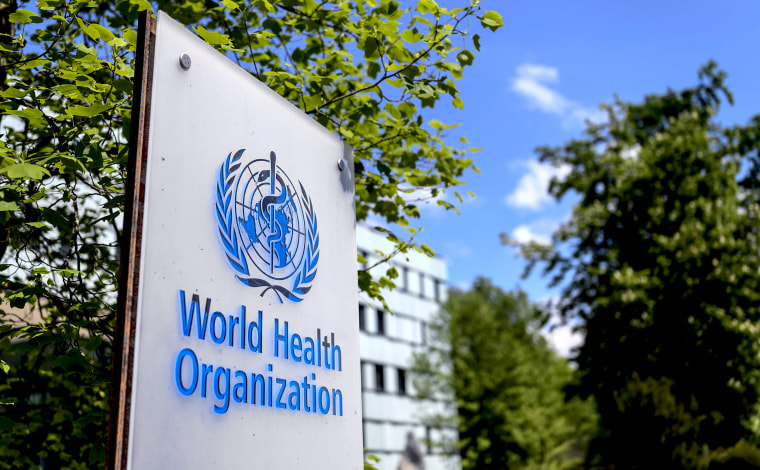In late May, Donald Trump made an announcement that was tough to defend: the United States, the president announced, was abandoning the World Health Organization altogether. The move was immediately and widely condemned as dangerous, especially in the midst of a deadly global pandemic, but the White House appeared indifferent to the consequences.
Yesterday, Trump took formal steps to follow through on his decision -- though in this case, it's important to note the fine print.
The United States officially notified the United Nations on Tuesday of its withdrawal from the World Health Organization, a White House official said. The notice, which comes as the coronavirus pandemic continues to spread around the globe, was submitted to the U.N. secretary-general and to Congress. The withdrawal is expected to take effect July 6, 2021.
Why isn't the Republican administration walking away from the WHO sooner than next July? Because it can't: as the New York Times explained, "By law the United States must give the organization a year’s notice if it intends to withdraw, and meet all the current financial obligations in the current year."
Let's take stock of how we arrived at this point, because the trajectory of the story is a little bizarre, even by Trump standards.
As part of the president's unfortunate campaign against the World Health Organization, the White House sent a letter to the international body in May, intending to summarize the administration's case against the WHO's recent efforts. It didn't go well: because Team Trump is careless when it comes to due diligence, the official letter included a series of "false or misleading statements."
Nevertheless, the White House gave the WHO a 30-day deadline to advance a series of proposed reforms. Just 11 days later -- two weeks ago today -- Trump announced plans to abandon the world body altogether.
The news was not well received. Indeed, the Republican's decision generated sharp rebukes from foreign officials, public-health leaders, legal experts, editorial boards, and members of Congress -- including some Republicans.
In the weeks that followed, the White House didn't appear to be doing any work on this, which in turn led some -- including me -- to question whether Trump actually intended to abandon the international organization or whether he was just sharing a random thought that had no real-world meaning.
Yesterday, the question was resolved: he really has begun the process of walking away from the WHO. Or at least, Trump wants to.
When he made the original announcement, the president's rhetoric did not appear ambiguous. "Because they have failed to make the requested and greatly needed reforms," he said in Rose Garden remarks, "we will be today terminating our relationship with the World Health Organization."
The use of the word "today" wasn't quite right, since Trump couldn't simply end the United States' partnership with the WHO at his direction. He could, however, begin the termination process, which the White House triggered yesterday.
At face value, this is plainly the wrong move. Lawrence Gostin, the director of the WHO’s Collaborating Center on National & Global Health Law, called the decision “among the most ruinous presidential decisions in recent history.” Gostin added, “It will make Americans less safe during an unprecedented global health crisis. And it will significantly weaken U.S. influence on W.H.O. reform and international health diplomacy. This disastrous action is deeply damaging to U.S. national interests."
The criticisms ring true, but the calendar offers some hope: if the U.S. termination of the partnership can't happen until next summer, and there's a very real possibility that Trump will lose an election between now and then, the decision on whether to actually abandon the World Health Organization may fall to his successor.
And with that in mind, former Vice President Joe Biden, the Democrats' presumptive 2020 nominee, announced his commitment yesterday to undo Trump's decision if elected.
Or put another way, the United States' future with the World Health Organization will be dictated by this year's presidential election.

